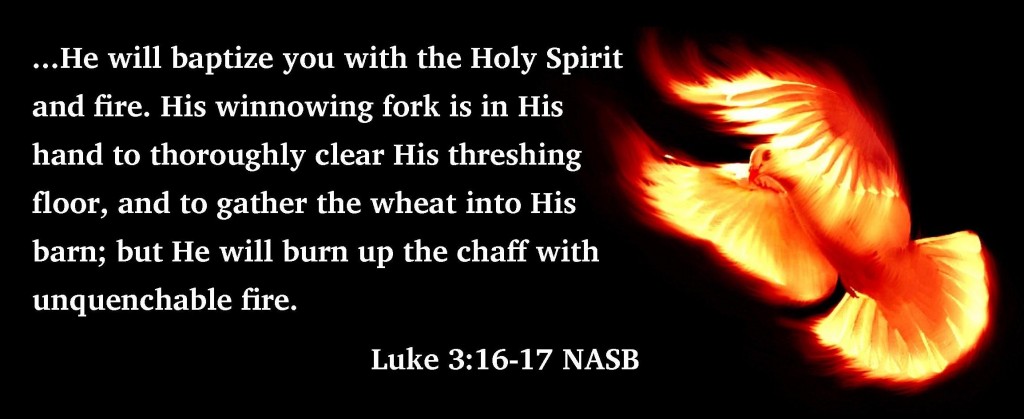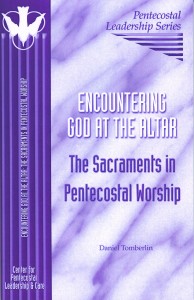This video has become “viral” and speaks to the heart of many. While I am somewhat sympathetic to the message, I find it to be uninformed and naive. Before I offer some correction to the message, let me state that this is not an attack upon this young man (Jefferson Bethke), or even a rebuke. Instead, I simply seek to offer some “fatherly counsel.”
Give me that Old Time Religion!???
A friend recently asked, “Could someone define the ‘old time way/religion’ to me?” My friend is a long term pastor with a heart to reach the next generation and is struggling with a cultural “tug-o-war.” Of course, he is not alone.
The Spirit and the Fire
The people of Israel were a people expecting deliverance from Roman domination. They desperately wanted to be free from Roman soldiers, Roman taxes, and Roman culture. As God had redeemed their ancestors from Egypt and Babylon, they now placed their hope in a new deliverer, a messiah that would embody Moses, Joshua, and David.
Is Your Church Too Small?
“For their sakes I sanctify Myself, that they themselves also may be sanctified in truth. I do not ask on behalf of these alone, but for those also who believe in Me through their word; that they may all be one; even as You, Father, are in Me and I in You, that they also may be in Us, so that the world may believe that You sent Me“ (John 17:19-21).
As a teen attending a Pentecostal church in the 1970s I consistently heard bold pronouncements about the dead Baptists, the apostate Methodists, and above all the “great whore” – the Catholic Church. The concept of ecumenism was most often presented as a diabolical scheme to form a “one-world” church led by the “false prophet” for the purpose of worshiping the notorious antichrist. As a young pastor in the 1980’s I discovered that these sentiments were firmly entrenched traditions in Pentecostal churches.
Forgetting Forward
Brethren, I do not regard myself as having laid hold of it yet; but one thing I do: forgetting what lies behind and reaching forward to what lies ahead, I press on toward the goal for the prize of the upward call of God in Christ Jesus (Philippians 3:13-14).
BOLDLY Go! BOLDLY Speak!
And when they had prayed, the place where they had gathered together was shaken, and they were all filled with the Holy Spirit and began to speak the word of God with boldness (Acts 4:31).
As the Christian church enters the third millennium of mission to all the world I am reminded of the words of my childhood hero, Captain James T. Kirk, who proclaimed the mission of the starship Enterprise: “… to boldly go where no one has gone before.” Jesus declared, “Go therefore… even to the end of the age” (Matthew 28:20).
Encountering God at the Altar
Encountering God at the Altar: The Sacraments in Pentecostal Worship
In the 2002-2003 United States Congregational Life Survey administered by the Center for Pentecostal Leadership and Care, Church of God pastors rated “participation in footwashing, baptism, or the Lord’s Supper” as the pastoral task they were least competent to perform. Yet the significant place these formational worship experiences have in Christian life and commitment and in relation to core Pentecostal theological teaching suggests the need for pastoral guidance in their observance. Pentecostal congregations need pastors capable of leading them in meaningful and Spirit-led participation in these biblically based spiritual practices.
This volume in the Center for Pentecostal Leadership and Care Pentecostal Leadership Series is intended to address this need in pastoral ministry. Dan Tomberlin takes seriously the ecclesial (within the church) context of the sacraments of footwashing, baptism, and the Lord’s Supper. He emphasizes the communal nature of their celebration as compared to more individualistic approaches. That is, Tomberlin sees these sacraments as formative and transformative rites of the church rather than mere personal religious experiences. He affirms the reality and importance of the personal dimension of faith but finds the fuller meaning of the sacrament in the relationship between the individual and the community of faith.


